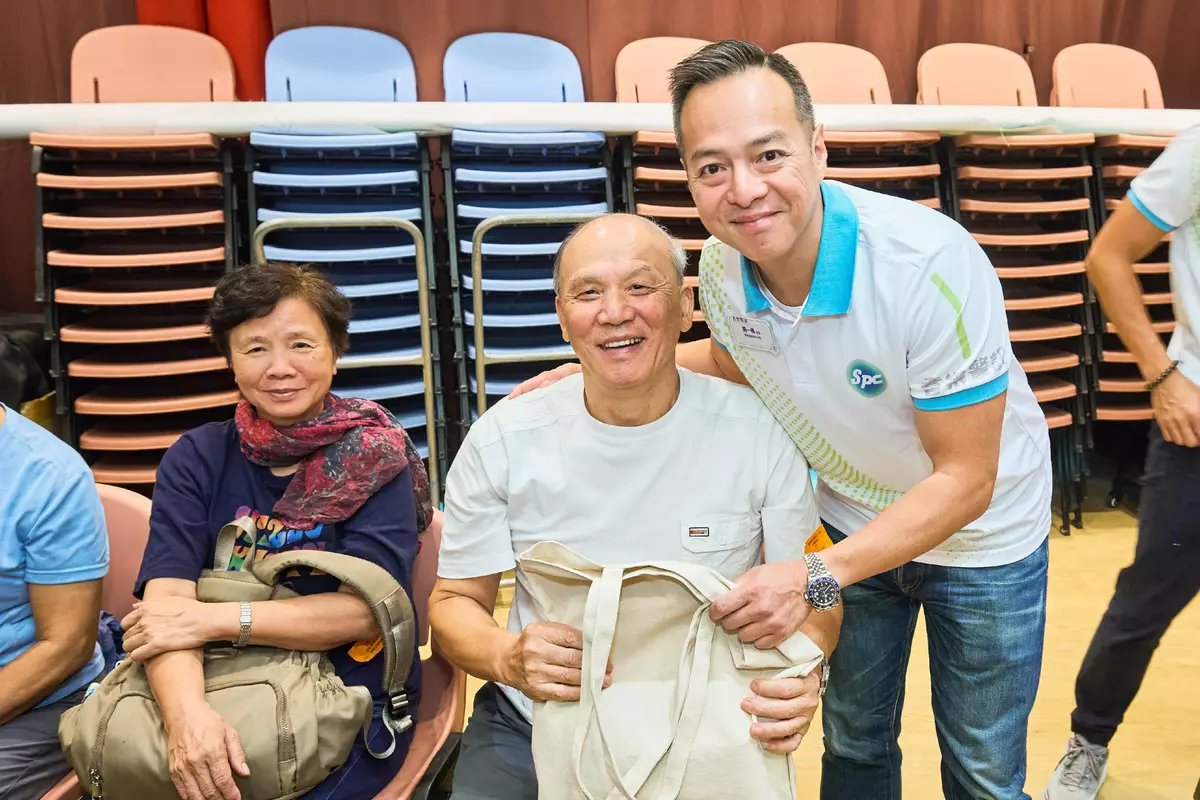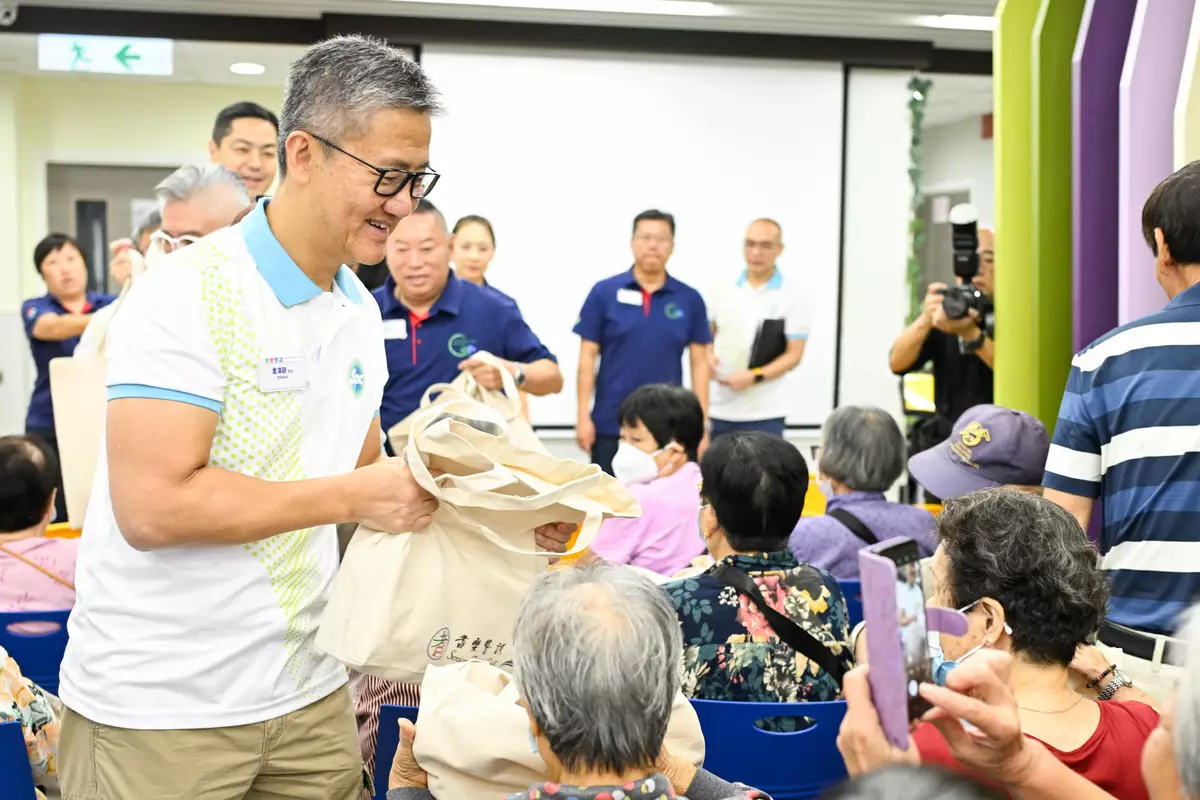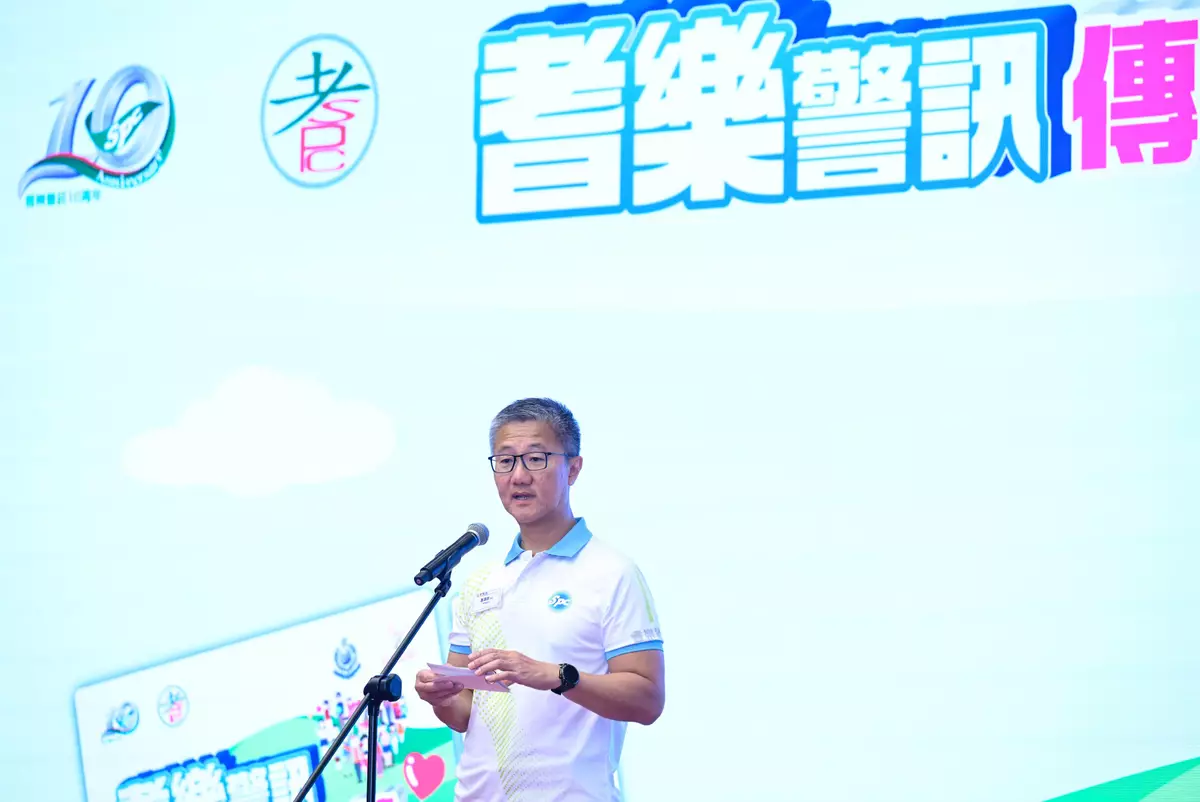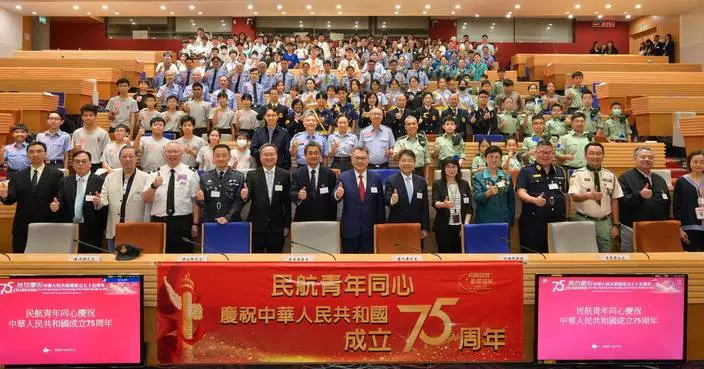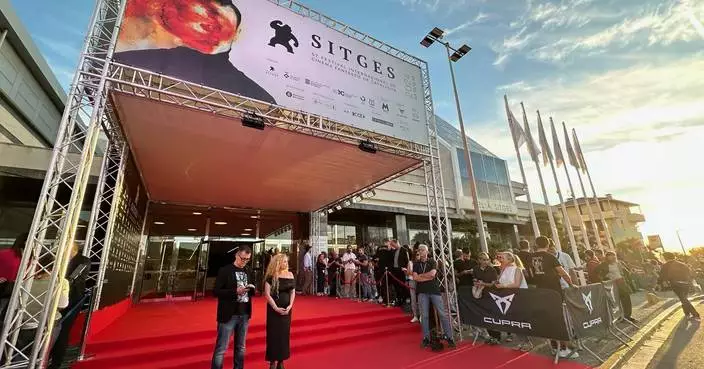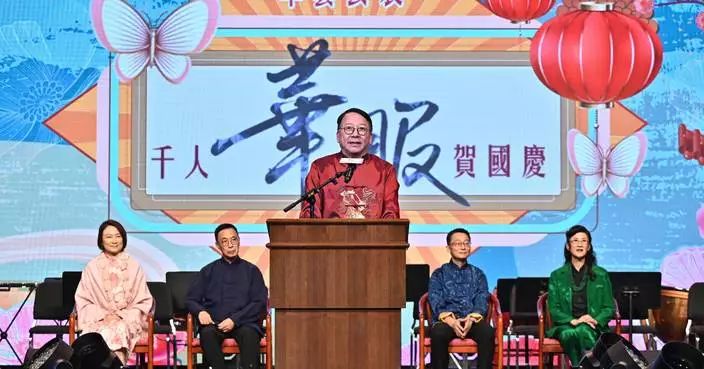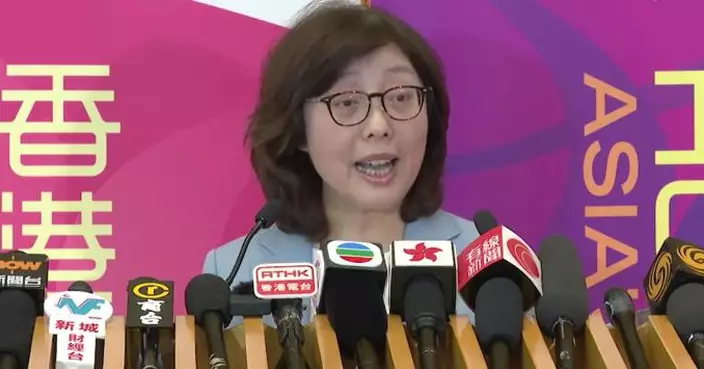Government takes action to regulate online videos classified as obscene; ensures protection of children and youth from harmful content on internet platforms
Following is a question by the Hon Holden Chow and a written reply by the Acting Secretary for Commerce and Economic Development, Dr Bernard Chan, in the Legislative Council today (July 3):
Question:
It has been reported that in March this year, a media organisation reported to the Office for Film, Newspaper and Article Administration a total of 10 videos involving pornography and indecency on YouTube, a video-sharing website. The Obscene Articles Tribunal (OAT) had subsequently made an interim classification that one of the music videos was a Class III (Obscene) article, i.e. the video should not be published to any person. However, the video had not been taken down when the relevant press report was made. In this connection, will the Government inform this Council:
(1) of the respective numbers of reports and complaints received by the authorities involving online videos classified as Class III (Obscene) articles in each of the past five years;
(2) of the number of articles classified as Class III (Obscene) by OAT in the past five years, with a tabulated breakdown by class of articles; among such articles, the percentage of online videos;
(3) of the respective numbers of warnings issued, prosecutions instituted and other enforcement actions taken by government departments under the Control of Obscene and Indecent Articles Ordinance (Cap. 390) in respect of articles classified as Class III (Obscene) and, among them, the number of those involving online videos in each of the past five years;
(4) of the respective numbers of cases in which locally-operated Internet platforms complied with the authorities' directions (including taking down the relevant videos) upon receipt of warnings issued by the authorities in respect of the videos classified as Class III (Obscene) articles on their platforms, or upon law enforcement by the relevant government departments, as well as the average time taken, in each of the past five years; and
(5) whether the authorities will review Cap. 390 or take further measures to prevent videos classified as Class III (Obscene) articles from being published on the Internet, so as to prevent children and young people from being corrupted; if so, of the details; if not, the reasons for that?
Reply:
President,
The Control of Obscene and Indecent Articles Ordinance (Cap.390) (COIAO) aims to regulate publication and public display of articles with obscene or indecent content in Hong Kong, including articles published on the Internet. Under the COIAO, "obscenity" and "indecency" include violence, depravity and repulsiveness, and articles can be classified as:
(a) Class I (neither Obscene nor Indecent), which can be published to any person;
(b) Class II (Indecent), which cannot be published to a juvenile, and the publication to persons aged 18 or above are subject to compliance with statutory requirements; and
(c) Class III (Obscene), which are prohibited from being published.
The Office for Film, Newspaper and Article Administration (OFNAA), the Hong Kong Police Force (Police) and the Customs and Excise Department are responsible for the enforcement of the COIAO. Upon receiving any complaint related to obscene or indecent articles, OFNAA will conduct initial investigation based on the guidelines stipulated in section 10 of the COIAO, and categorise the articles with reference to the previous classifications made by the Obscene Articles Tribunal (OAT) of the Judiciary on similar articles. For cases that can be clearly categorised as Class III (Obscene) articles, OFNAA will refer the case to the Police for follow-up directly. If the category of an article could not be determined or there are doubts about its categorisation, OFNAA will submit the article concerned to the OAT for classification. Therefore, the cases where the OAT has made classification are only a subset of the complaint cases received.
In relation to the regulation of obscene or indecent content on the Internet, in view of the vast volume of information on the Internet and the rapid updates, the Government has all along been adopting a complaint-driven and co-regulatory approach with the industry to handle complaints concerning the publication of obscene or indecent articles on the Internet. The Government works with the Hong Kong Internet Service Providers Association (HKISPA) to implement a self-regulatory Code of Practice - Practice Statement on Regulation of Obscene and Indecent Material (CoP), which stipulates that:
(a) if any person disseminating information on the Internet publishes any material with Class II (Indecent) content, he should display an on-screen prescribed warning notice on the webpage, before allowing the content to be viewed by Internet users; and
(b) if Internet users are found publishing Class III (Obscene) articles, internet service providers should have the relevant articles removed or blocked, such that the information concerned could not be viewed in Hong Kong.
For individual cases involving overseas webpages (e.g. some video-sharing platforms) which require follow-up actions from overseas organisations (e.g. adding warning notice or removing relevant content), the Police or OFNAA may refer the case to law enforcement agencies in other jurisdictions or overseas website operators for appropriate actions. OFNAA would conduct follow-up inspections on these webpages to monitor the follow-up actions taken by overseas organisations.
In fact, in relation to the situation mentioned in the preamble of this question, during the first half of 2024 (up to June 28), OFNAA has received a total of 20complaints in batches about the relevant overseas video sharing website, involving 100 videos, among which 13 were classified by the OAT as Class III (Obscene) articles. After being informed of the OAT's interim classification, OFNAA had immediately referred the cases concerned to the Police for follow-up actions, and had also conducted multiple inspections on the webpages concerned to confirm that the platform concerned had taken action against all 13 videos classified as Class III (Obscene) articles, including removing or blocking the videos concerned, such that these videos could not be played in Hong Kong.
In consultation with the Security Bureau and the Judiciary, the reply to the questions raised is as follows:
(1) In the past five years, the Government has received a total of 14 complaints involving online videos that were suspected to be Class III (Obscene) articles. The breakdown by year is as follows:
Year
No. of complaints involving online videos that were initially categorised or classified as Class III (Obscene) articles
2019
1
2020
2
2021
3
2022
5
2023
3
After receiving the complaints, OFNAA had followed its established procedures and referred all articles initially categorised or classified as Class III (Obscene) to the Police for follow-up.
(2) In the past five years, the OAT classified around 50 articles each year on average. The number of articles that were classified as Class III (Obscene) by the OAT is as follows:
Year
Videos
Books/ magazines/ newspapers
Others
(e.g. photos, packaging of articles)
2019
2020
2
(The two videos are not online videos)
5
3
2021
2
2022
2023
(3) In the past five years, the number of prosecutions and number of persons convicted for contravening the prohibition on publishing Class III (Obscene) articles under the COIAO each year are as follows:
Year (Note)
No. of prosecution cases
No. of persons prosecuted
No. of persons convicted
2019
55
60
59
2020
28
31
30
2021
58
66
65
2022
24
24
24
2023
18
18
18
(4) Among the 14 cases involving online videos that were initially categorised or classified as Class III (Obscene) articles, one case involved a locally-operated Internet platform. Upon receiving referral from the Police, the platform concerned had blocked the video concerned, such that the video could not be played in Hong Kong. The Police does not maintain information related to the time taken to follow up on the above case.
(5) The Internet is not an unreal world that is beyond the law. Most of the crime-prevention laws in the real world are applicable to the Internet world. The COIAO aims to protect juveniles and children from the influence of harmful material, while maintaining the free flow of information and freedom of expression.
Other than actively following up on complaint cases, OFNAA has been organising publicity and public education activities in relation to the COIAO, such as organising territory-wide publicity campaigns, collaborating with schools on activities, and hosting seminars and workshops for parents to educate children and juveniles on the importance of healthy information and strengthen their ability to reject harmful information.
The Government appeals to the industry to join hands to safeguard the juveniles from being influenced by obscene and indecent content. In this regard, OFNAA has written to major media sharing platforms and members of the HKISPA earlier, requesting them to strictly observe relevant provisions of the COIAO and the CoP, as well as encouraging them to take more proactive measures to prevent young users from accessing obscene and indecent content, such as tightening up screening and removal of harmful content hosted on their platforms, setting up community rules to reduce the dissemination of harmful messages, and putting in place safeguard measures for young users.
On the other hand, OFNAA is making preparations for a new round of publicity and public education activities to remind juveniles to stay away from obscene and indecent information while using these online platforms. Apart from the seminars and workshops mentioned above, in order to specifically promote relevant messages to students, OFNAA will also organise the "Healthy Information Student Ambassadors Scheme", roving drama performances, competitions such as "Healthy Mobile App Sticker Design Competition", "Healthy Student Video Contest" and "Healthy Chinese Public Speaking Competition" etc, to raise awareness among students and juveniles on the safe use of the Internet.
Note: The year above represents the year in which the trial was concluded. The year in which a case was prosecuted may be different from the year in which the trial was concluded. The Police does not maintain breakdown figures involving online videos from the above cases.

Source: AI-generated images


